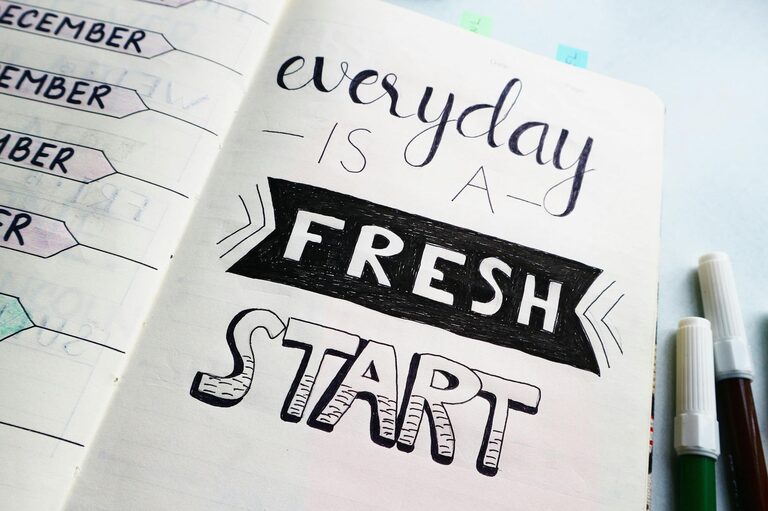Creativity isn’t just for artists or writers—it’s a skill that everyone can develop and use every day. Whether you want to solve problems in new ways, enjoy hobbies, or simply bring more joy and innovation into your life, practicing creativity regularly can help. The good news is that you don’t need special tools or a lot of time. Small, simple habits can make a big difference.
In this post, we’ll explore simple ways to nurture your creativity daily. These techniques are designed to fit easily into your routine and encourage your mind to think differently.
Why Practice Creativity Every Day?
Creativity is like a muscle—the more you use it, the stronger it gets. Daily creative practice can:
– Improve problem-solving skills
– Boost mental well-being and reduce stress
– Increase flexibility in thinking
– Help you discover new passions and ideas
Even if you don’t consider yourself “creative,” trying some of these tips can open new doors and make your days more engaging.
1. Start a Daily Journaling Habit
Journaling is a powerful way to connect with your thoughts and ideas. You don’t have to write pages; even a few lines each day can help.
How to get started:
– Set aside 5 minutes each morning or evening
– Write about your day, ideas, dreams, or even doodle
– Don’t worry about spelling or grammar—just let your thoughts flow
Journaling can spark creative insights and make you more mindful of the ideas around you.
2. Explore Mind Mapping
Mind mapping is a visual brainstorming technique that helps organize thoughts around a central concept. It’s simple and fun to do.
Steps to create your mind map:
– Write your main idea in the center of a page
– Draw branches with related words, questions, or images
– Add sub-branches to expand your thoughts
Use mind maps for planning projects, solving problems, or organizing daily tasks more creatively.
3. Change Your Environment Occasionally
Sometimes, a change of scenery can refresh your mind and open new channels for creativity.
Ideas to try:
– Work in a different room or café
– Spend time outdoors, like in a park or garden
– Rearrange your workspace
New surroundings stimulate the brain and make routine tasks feel more interesting.
4. Engage in Creative Hobbies
Dedicating time to hobbies that involve making or imagining something can enhance your creative skills.
Some accessible hobby ideas:
– Drawing or doodling
– Cooking or trying new recipes
– Gardening or crafting
– Playing a musical instrument
Even 15-30 minutes daily can provide a creative boost and improve focus.
5. Practice “Yes, And…” Thinking
This exercise comes from improvisational comedy but works great for everyday creativity. It encourages building on ideas rather than shutting them down.
How to practice:
– When you think of an idea, say “yes, and…” instead of “no” or “but”
– Add details or new thoughts that expand on the original idea
– Do this with yourself or collaborators
This approach reduces self-censorship and leads to more innovative thinking.
6. Limit Distractions and Allow Daydreaming
In our busy lives, it’s easy to fill every moment with tasks or screen time. However, allowing your mind to wander can foster creativity.
Tips to create space for daydreaming:
– Set aside quiet moments without devices
– Take short breaks during work or study
– Practice mindfulness or simple breathing exercises
Letting your brain relax helps new ideas emerge naturally.
7. Read Widely and Regularly
Reading exposes you to new ideas, stories, and perspectives that stimulate your imagination.
Ways to encourage more reading:
– Choose a variety of genres, topics, and authors
– Set a daily reading goal, even if just a few pages
– Keep a book or e-reader handy for spare moments
Expanding what you read enriches your creative thinking toolbox.
8. Collaborate and Share Ideas
Creativity often thrives in social settings where ideas are shared and combined.
How to collaborate creatively:
– Join a local or online creative group
– Brainstorm with friends or colleagues
– Share your work to get feedback
Working with others exposes you to different viewpoints and inspires fresh ideas.
9. Try a New Activity or Skill
Challenging yourself with something unfamiliar pushes your brain out of comfort zones.
Suggestions include:
– Learning a new language or craft
– Trying a new sport or exercise routine
– Exploring digital tools like photo editing or music apps
Experimenting boosts flexibility and helps connect ideas in new ways.
10. Reflect on Your Creative Progress
Regular reflection helps you notice patterns and growth in your creativity.
Reflection tips:
– Review your journal or mind maps weekly
– Celebrate small wins and new insights
– Adjust your creative habits as needed
Self-awareness nurtures continuous improvement and motivation.
—
Final Thoughts
Creativity is accessible to everyone, and with a little practice, it can become a natural part of your daily life. By incorporating even a few of these simple habits, you may find yourself thinking more flexibly, feeling more inspired, and enjoying the process of creative discovery.
Remember, there’s no right or wrong way to be creative. The key is to keep experimenting, stay curious, and have fun along the way. Happy creating!

